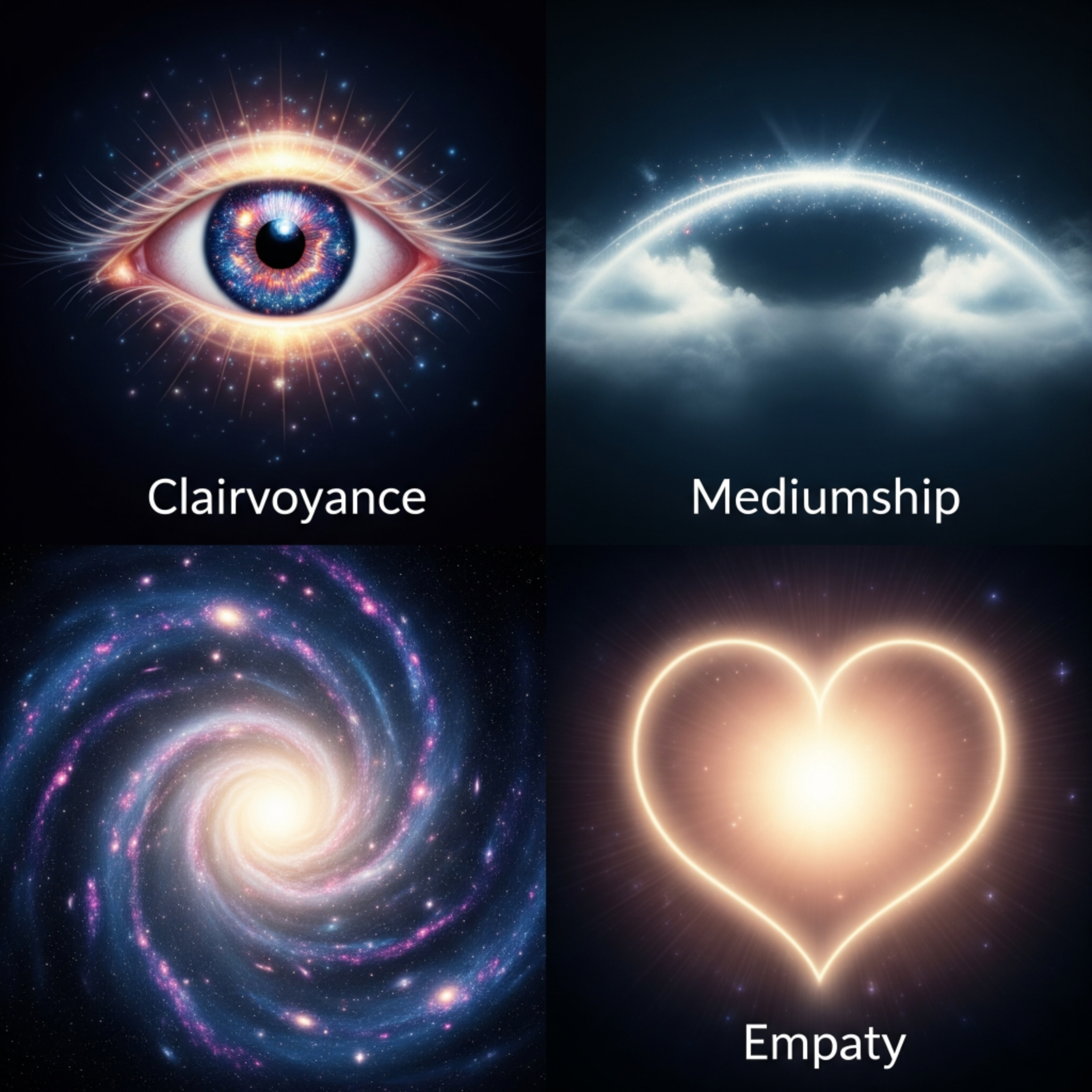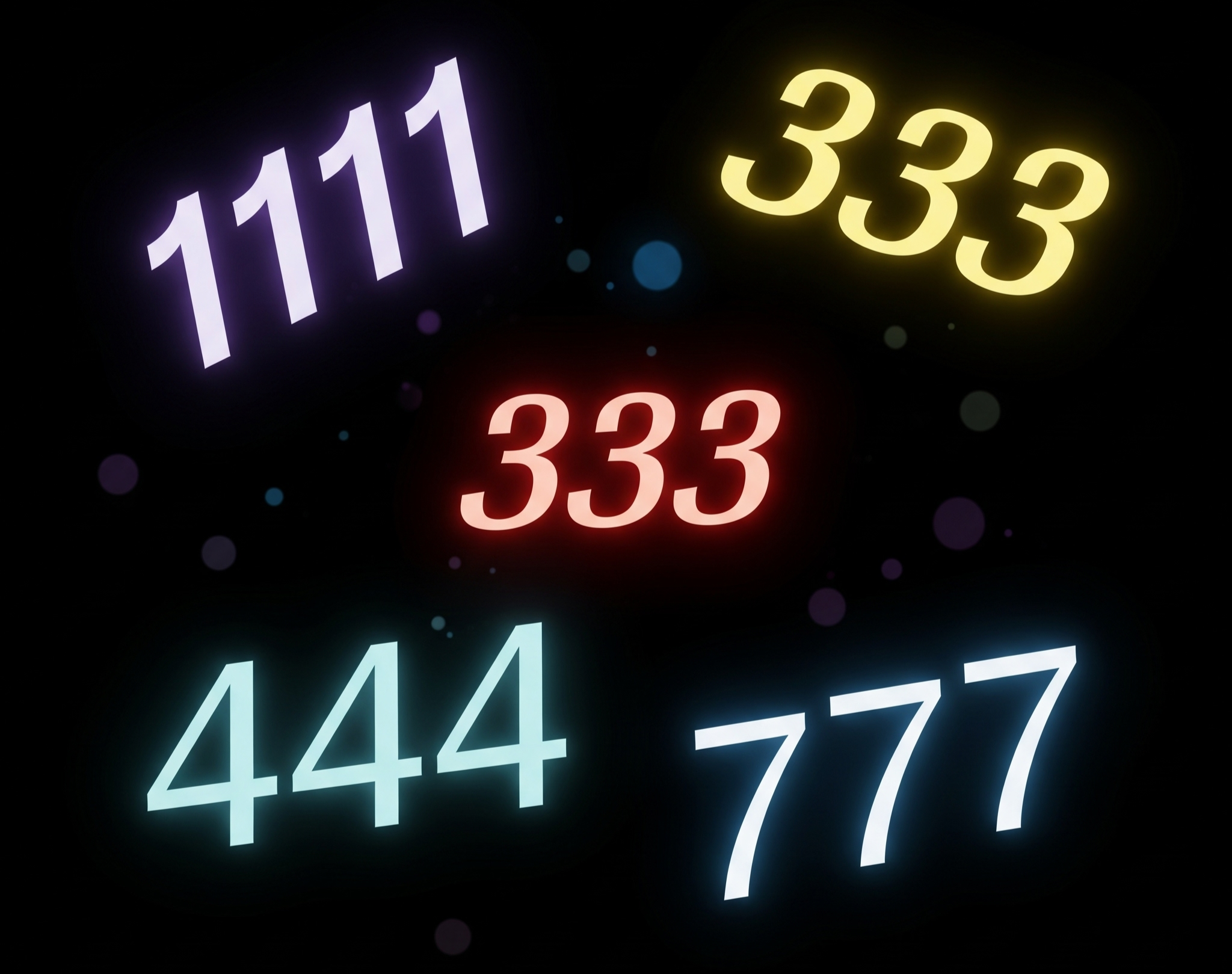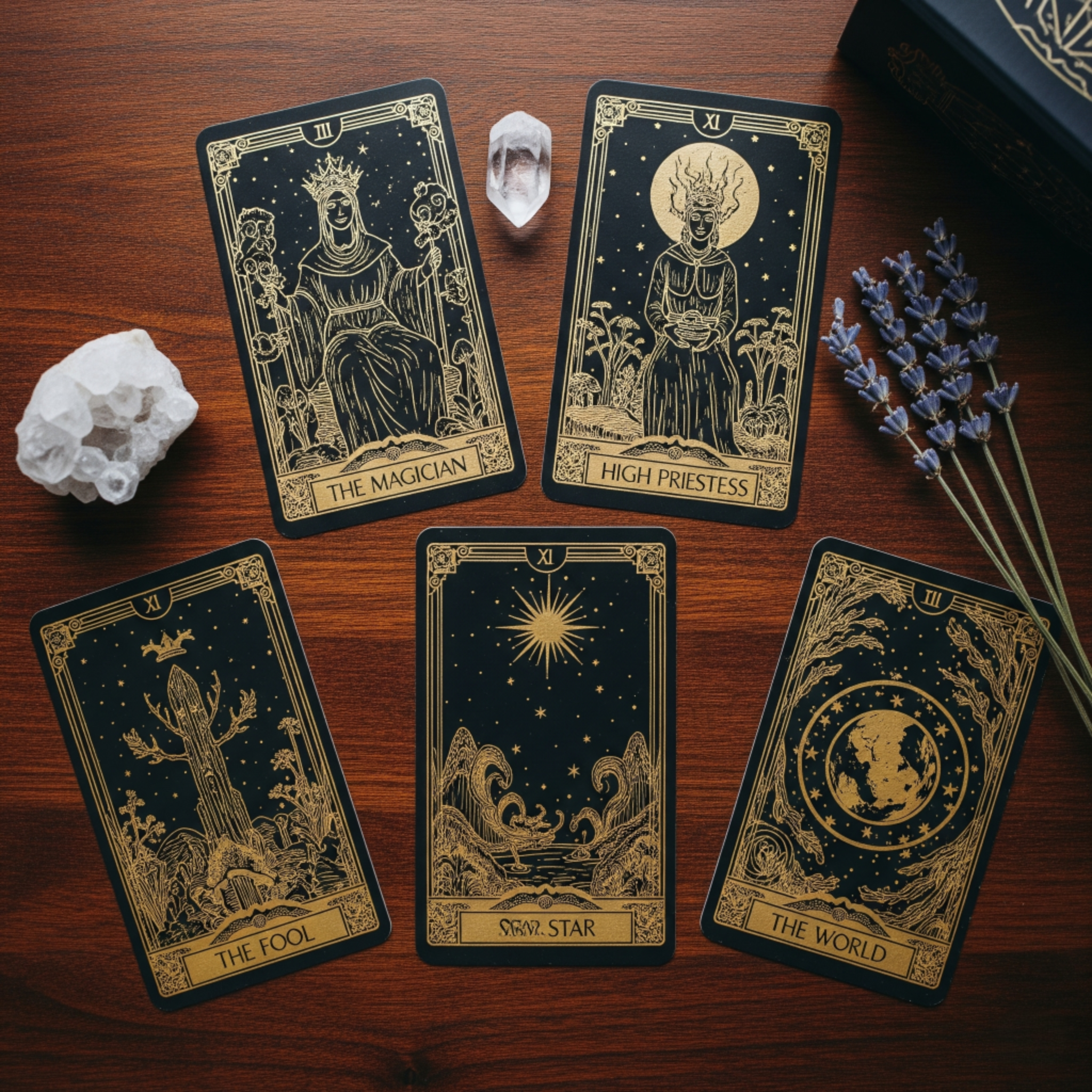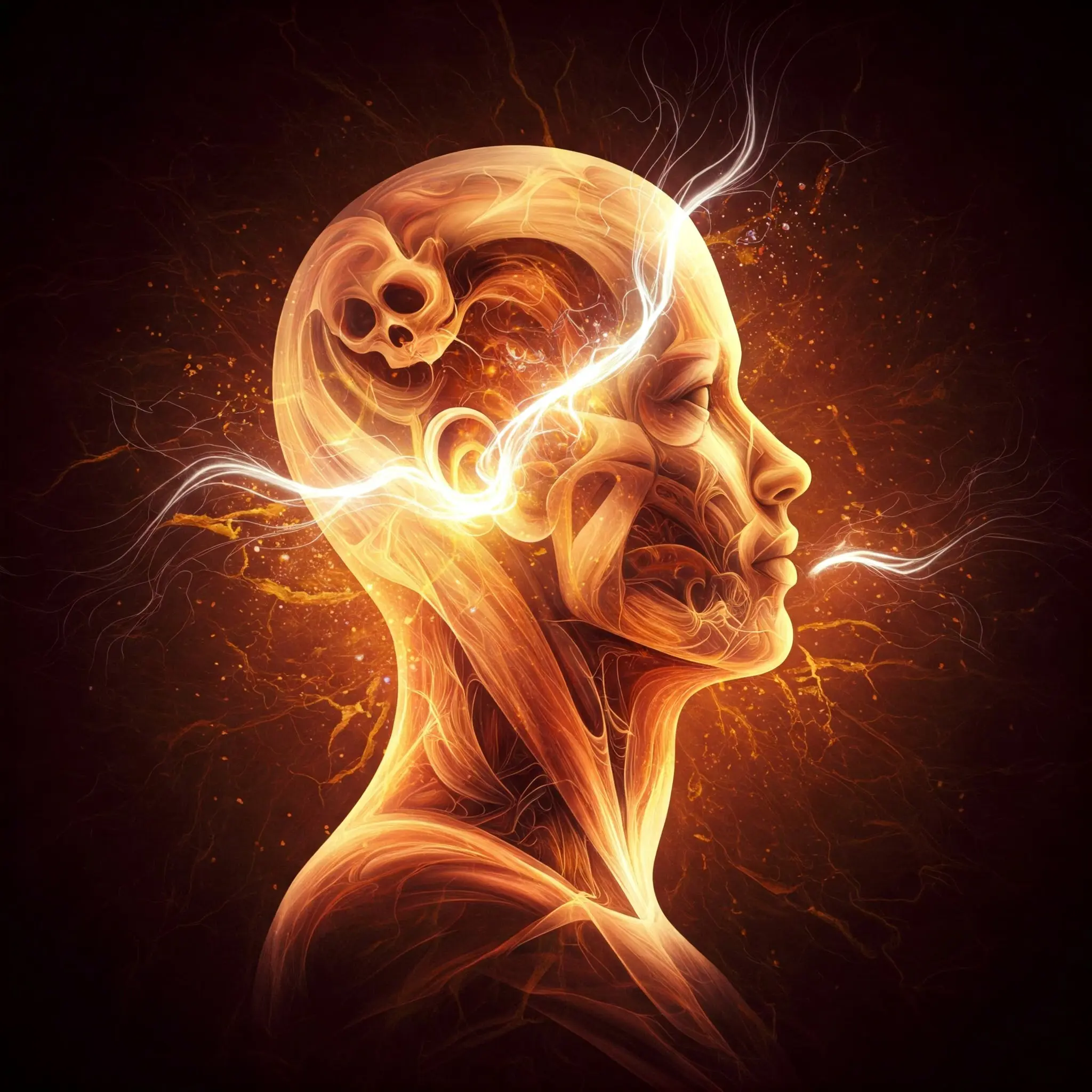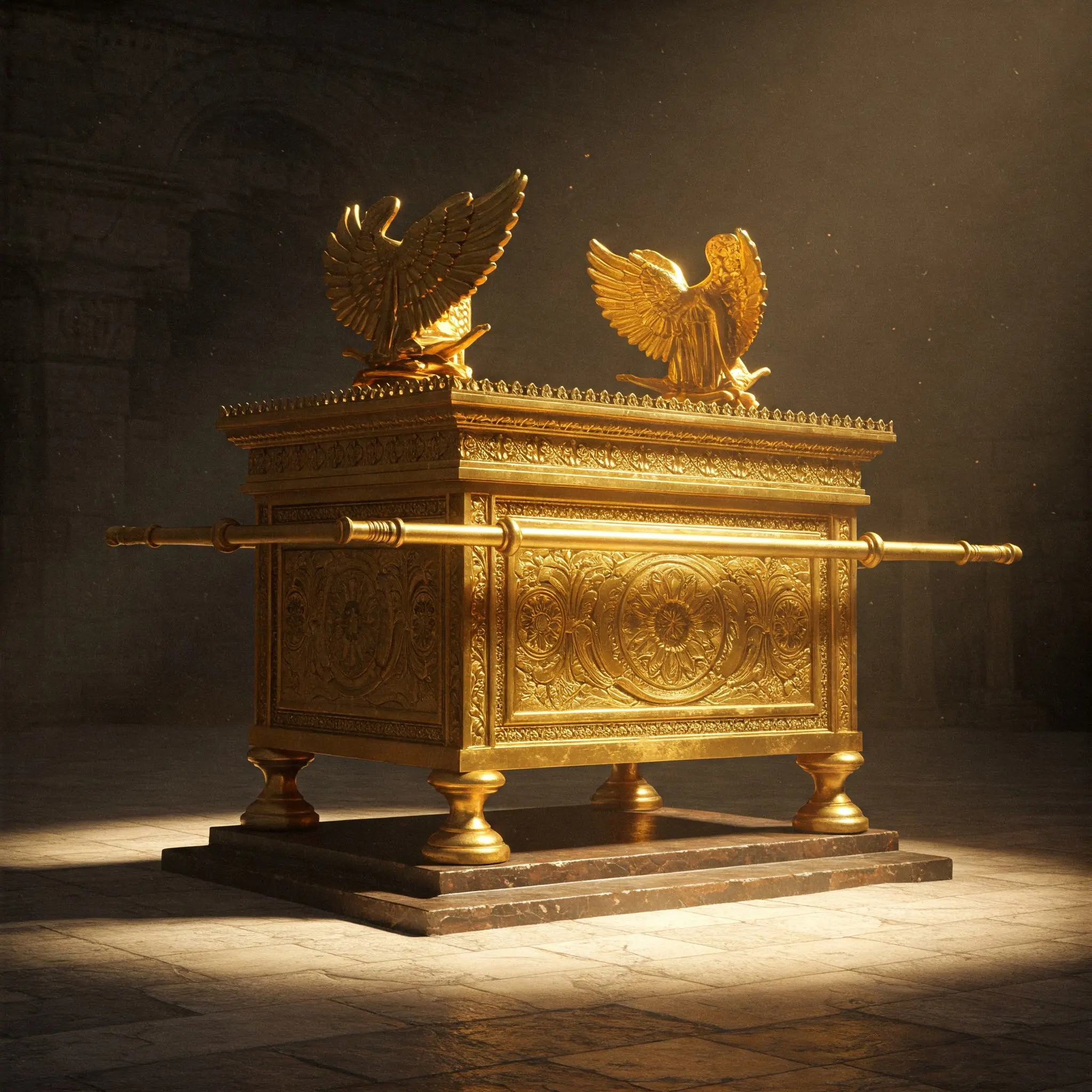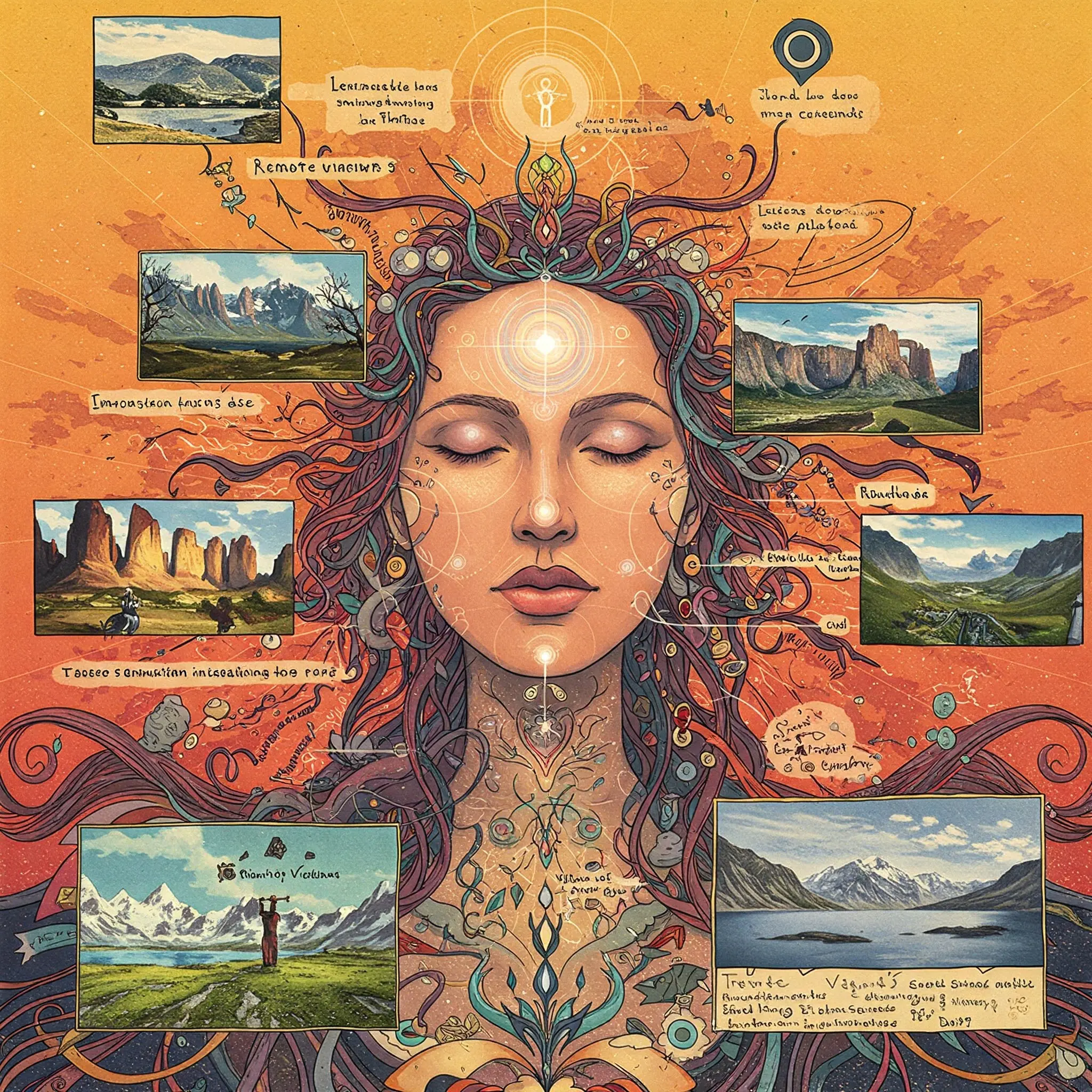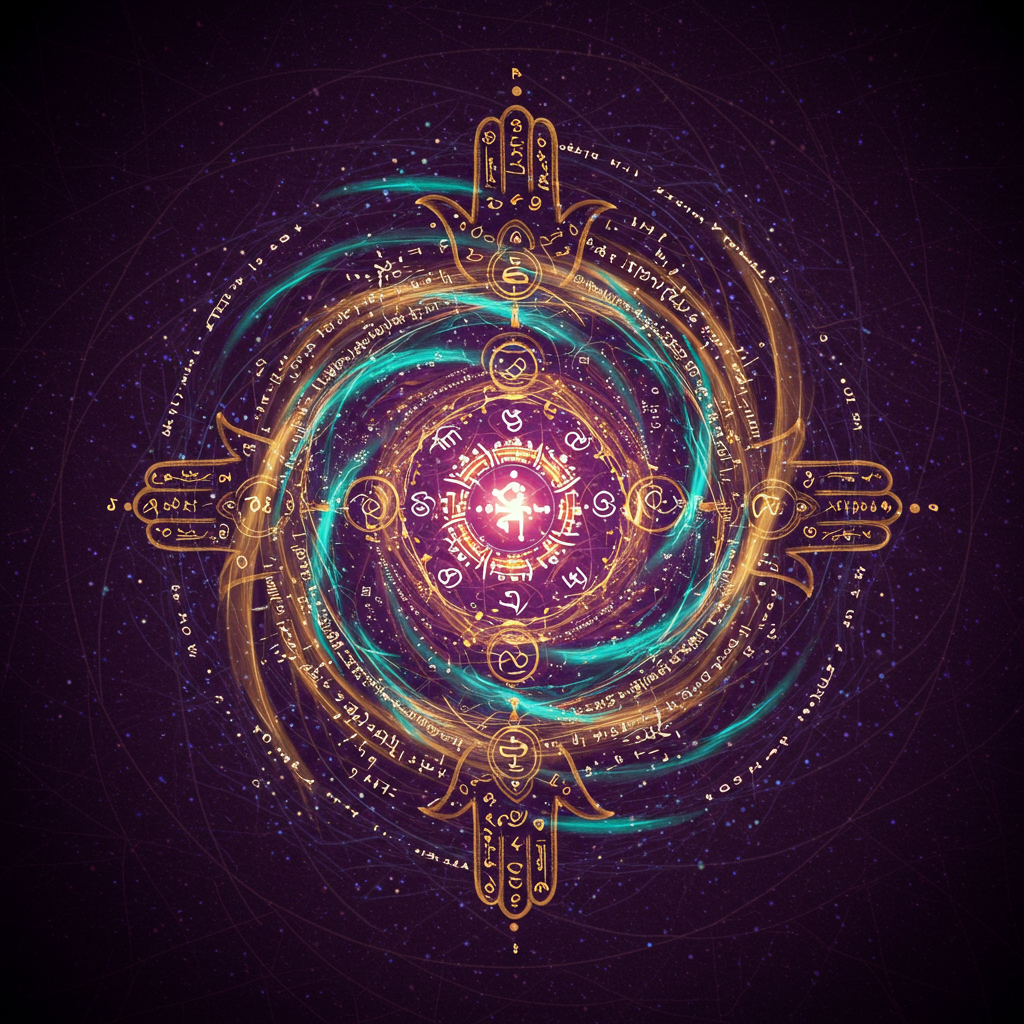Psychic Readings Starting From 99¢ Per Message
The Answers You Need - Fast - In a Chat Reading With a Trusted Psychic Advisor
76Psychics Blog
Unveil the unseen and explore the depths of intuition with insights from the psychic realm
Welcome to our blog, a space dedicated to exploring the enigmatic world of psychic abilities and intuitive wisdom. Here, we delve into the realms of clairvoyance, telepathy, and other extraordinary phenomena, offering insights and perspectives that bridge the gap between the seen and the unseen. Whether you're a seasoned practitioner or simply curious about the potential of human perception, join us as we unravel the mysteries of the psychic realm, fostering a deeper understanding of the intuitive connections that shape our lives.
Is mediumship real, or is it just a mix of grief, guesswork, and good acting? This is the central question of the latest episode of The Telepathy Tapes (Season 2, Episode 2), titled Mediumship Under The Microscope. Host Ky Dickens takes us on a fascinating journey that moves beyond ghost stories and into the laboratories and blind trials designed to test whether consciousness survives death. If you’ve ever been skeptical about psychics but curious about the afterlife, this episode is a must-listen. Here is a breakdown of what you’ll hear. From Skeptic to Believer The episode begins with the moving story of Bob Ginsberg, co-founder of the Forever Family Foundation
We’ve all watched the movies. You know the scene: eyes lock across a crowded room, the music swells, and suddenly, two people just know they belong together. In pop culture, we call this finding The One. But in the spiritual realm, connections of the heart are far more nuanced—and far more powerful. If you’ve recently met someone who has turned your world upside down, you might be frantically Googling terms like soul connection or spiritual tie. You’ve likely stumbled across two heavy hitters: Soulmates and Twin Flames. While people often use these terms interchangeably, they are distinct spiritual concepts with very different purposes. Are you resting in the comfort of a Soulmate, or are you walking through the fire with a Twin Flame? Let’s demystify the difference. What is a Soulmate? The Comforting Companion A Soulmate is a soul from your same soul family or energetic group. You have traveled through many lifetimes together, pla
Are you standing at a crossroads, pondering big life decisions, or simply seeking deeper insight into your journey? A psychic reading can be an incredibly powerful tool for clarity, guidance, and personal empowerment. However, many people approach their first (or even fifth) reading with a sense of nervousness, wondering, What should I even ask? The truth is, the magic of a great psychic reading often lies not just in the psychic's abilities, but in the quality of your questions. If you’ve ever felt a reading left you wanting more, or you only got yes or no answers, you're not alone. The secret? Moving beyond simple predictions to explore deeper, more insightful inquiries. Why Will He Call? Isn't Your Best Question It’s natural to want quick answers: Will I get the job? Is he the one? When will things get better? While psychics can tap into probabilities and energies, asking only Yes/No or When questions can limit the depth of your reading. Why? The Future is Fluid
Welcome to the vast and often mystifying world of intuitive arts. If you’ve ever found yourself seeking spiritual guidance, you’ve likely encountered a dizzying array of titles: psychic, medium, clairvoyant, empath, and many more. It’s a common point of confusion. Are they all the same? Does a medium do what a psychic does? Where does an empath fit in? The uncertainty can feel like a barrier, preventing you from finding the right practitioner for your specific needs. Think of it like the world of medicine. You have a general practitioner who can assess a wide range of issues, but you also have specialists like cardiologists, neurologists, and dermatologists, each with a finely-honed focus. The world of intuitive arts operates in a similar fashion. While there is often overlap, each title represents a unique skill set, a different way of perceiving and interpreting the energetic information that flows around us all. The purpose of this guide is to lift the veil of confusion. We will take a deep, comprehensive dive into each of these four key terms, exploring what they mean, how they work, and what a session with each type of practitioner might lo
Have you ever glanced at the clock and noticed it was exactly 11:11? Or maybe you’ve been on a drive and seen the number 222 on three different license plates in a row. You grab a coffee, and your total is $4.44.Coincidence? Maybe. But for those attuned to the spiritual whispers of the universe, these recurring numbers are something more. They are messages. We call them Angel Numbers.What Are Angel Numbers?Angel Numbers are sequences of numbers that carry divine guidance and specific vibrational meanings. Think of them as gentle nudges from your guardian angels, spirit guides, or the universe itself. They are a common and powerful form of synchronicity, designed to catch your attention and deliver a message you need to hear at that exact moment.Because numbers are a universal language, they are one of the easiest ways for the spiritual realm to communicate with us in our physical world. When you see these patterns, it's a sign that you are loved, supported, and on the right path.Common Angel Numbers and Their MeaningsWhile any number can be a message, some sequences are more common than others. Here’s a quick guide t
In the vast tapestry of human experience, few subjects provoke such a stark dichotomy of belief as the existence of psychic abilities. For some, the psychic is a charlatan, a clever manipulator preying on the vulnerable with parlor tricks and psychological games. For others, they are gifted conduits of profound wisdom, offering guidance, clarity, and a connection to something beyond the grasp of our five senses. The question, Are psychics real or fake? is not merely a matter of idle curiosity; it strikes at the very heart of how we perceive reality, consciousness, and the unseen forces that may shape our lives.Skepticism is not only understandable; it is healthy. We live in a world governed by the tangible, the measurable, the scientifically verifiable. From a young age, we are taught to trust what we can see, hear, and touch. The scientific method, with its rigorous demands for empirical evidence and replicable results, has propelled human progress at an astonishing rate. Within this framework, phenomena like clairvoyance (clear seeing), telepathy (mind-to-mind communication), and precognition (knowing the future) seem like relics of a more superstitious age
For Elara Vance, turning thirty-five felt less like a milestone and more like a foreclosure notice on a property she hadn't even finished building. On paper, her life was a blueprint of modern success. She was a partner at a boutique graphic design firm in Chicago, a city whose architectural bones she adored. Her name was on the lease of a stunning corner apartment in Lincoln Park with floor-to-ceiling windows that overlooked the city's glittering, indifferent skyline. Her circle of friends was a fortress of loyalty and laughter, forged over two decades of shared triumphs and cheap wine. Yet, in the quiet, unguarded moments after the work was done and the friends had gone home, a cavernous silence would open up. The one thing she yearned for most—a deep, soul-shaking love that felt like coming home—remained stubbornly, painfully out of reach.She had done it all, truly. She had approached finding a partner with the same methodical dedication she applied to a new design campaign. The dating apps on her phone were a graveyard of dead-end conversations and ghosted connections. She’d swiped right until her thumb was numb, enduring a parade of first dates that felt more like jo
Welcome to the mystical world of Tarot! For centuries, these evocative cards have served as a powerful tool for self-reflection, gaining insight, and understanding the currents of our lives. If you've ever been curious about Tarot but felt intimidated by its seeming complexity, you've come to the right place.This guide will introduce you to the heart of the Tarot deck: the Major Arcana. Think of these 22 cards as the soul of the Tarot, representing significant life events, profound spiritual lessons, and the overarching themes that shape our journeys. Unlike the Minor Arcana (which deal with the day-to-day aspects of life), the Majors highlight pivotal moments and archetypal energies.Let's embark on a visual and insightful exploration of some key cards within the Major Arcana, and discover how they weave together to tell a powerful story – often referred to as The Fool's Journey.Meet Some Key Players in the Major Arcana:To help you connect with these powerful archetypes, imagine these visually:The Fool (Card 0): A carefree figure standing at the edge of a cliff, a small bag on
Life is humming along as usual, and then, suddenly, it’s not. You might feel a subtle shift, a quiet hum beneath the surface of your daily routine, or perhaps a sudden, disruptive jolt that makes you question everything. It can feel isolating, confusing, and intensely personal. If this resonates with you, you might be at the beginning of a profound journey: a spiritual awakening.This isn't just a fleeting mood. A spiritual awakening is a deep-seated shift in your consciousness, an inner evolution where you begin to see the world, yourself, and your place in it through a new, more expansive lens. It's the process of waking up to your true, authentic self and recognizing a connection to something greater than your individual ego.Many people seek out guidance when these shifts begin because they can be as disorienting as they are enlightening. This post is here to validate your experience, provide a framework for understanding these changes, and offer gentle guidance on how to navigate this transformative time.Here are 10 common signs that you may be experiencing a spiritual awakening:1. Your Intuition is on High AlertThat quiet gut feeling is
We’ve all been there. The tell-tale blush creeping up your neck in embarrassment, the racing heart before a big presentation, the sickening lurch in your stomach when receiving bad news, or the warm, expansive glow that accompanies pure joy. For centuries, poets and philosophers have alluded to the visceral, physical nature of our emotions. But what if these weren't just metaphors? What if our bodies systematically and predictably map our emotional experiences? Groundbreaking research has moved this idea from the realm of poetic intuition to scientific fact, revealing intricate bodily maps of emotions that are surprisingly universal.This post delves into this fascinating research, particularly the seminal 2014 study Bodily maps of emotions by Lauri Nummenmaa, Enrico Glerean, Riitta Hari, and Jari K. Hietanen, published in the Proceedings of the National Academy of Sciences. We'll explore how specific emotions light up or cool down distinct regions of our bodies, what this means for our understanding of the mind-body connection, and finally, how looking beyond the purely physical, perhaps towards a psychic reading, can offer even deeper, personalized insights
The celestial realm, populated by beings of light, power, and mystery, has captivated human imagination for millennia. Within Judeo-Christian tradition, the concept of angels – divine messengers and servants of God – is central. Yet, scripture hints at a complex hierarchy, mentioning specific types of celestial beings whose roles and appearances differ dramatically. Among the most awe-inspiring are the Seraphim and Cherubim, often contrasted with the more familiar angels (Malakhim in Hebrew).This post aims to delve into the nature, functions, and depictions of these beings, drawing primarily from the canonical Bible, with a special focus on the Book of Genesis, and supplementing this with insights from the extra-biblical, yet historically significant, Book of Enoch. We will explore their distinct roles, their interactions—including the controversial accounts of intermixing—with humankind, and ponder the subtle, or perhaps not-so-subtle, signs believers might interpret as their continued presence today.I. The General Concept of Angels (Malakhim)Before differentiating, let's establish the baseline. The word angel derives from the Greek
Imagine the ability to perceive places, people, or events distant in space—and perhaps even time—using only the power of your mind. Not through guesswork or logical deduction, but through a structured application of innate intuitive or psychic abilities. This is the core premise behind remote viewing (RV), a term and a set of practices that emerged from controversial, government-funded research during the Cold War and continue to fascinate and polarize audiences today.Unlike vague notions of psychic flashes or clairvoyance often depicted in fiction, remote viewing, at least as conceived by its pioneers, involves specific protocols and methodologies designed to elicit and record verifiable information about unseen targets. It’s a field steeped in espionage history, scientific debate, and claims of extraordinary human potential. But what exactly is remote viewing? How did it start? What do its practitioners claim, and what does science say? This post aims to provide an informational overview of this intriguing and often contentious subject, exploring its history, methods, applications, and the enduring controversies surrounding it.I. From Cold War
This is perhaps the most frequently cited anecdote used by proponents to demonstrate a dramatic success. Remote viewer Pat Price, given only geographical coordinates, allegedly described structures at a secret Soviet R&D site at Semipalatinsk (referred to in some documents as URDF-3).The most striking detail was his accurate drawing of a unique, giant gantry crane used at the site, which proponents claim was unknown to US intelligence at the time and later confirmed by satellite imagery. Russell Targ, a lead researcher, often highlighted this case.In the long, tense twilight struggle of the Cold War, the United States and the Soviet Union fought battles not only with tanks, missiles, and spies trading secrets in dimly lit alleys, but also on stranger, more esoteric fronts. Amidst the nuclear brinkmanship and ideological clashes, a peculiar and highly classified front opened up – one fought not with conventional weapons, but with the purported power of the human mind. This was the era of psychic spying, a time when intelligence agencies, driven by mutual paranoia and whispers of breakthroughs behind the Iron Curtain, began exploring the bizarre potential of extra
That feeling. It starts small, maybe a tiny prickle of unease at the back of your mind. Something feels... off. You brush it aside, tell yourself you're being silly, insecure, or maybe just tired. But it lingers, sometimes growing into a persistent knot in your stomach, a quiet hum of anxiety that whispers doubts into your heart during quiet moments. Suspecting the person you love, the person you've built a life or dreams with, might be betraying your trust is one of the most painful, confusing, and isolating experiences a woman can go through.Your heart aches, your mind races, and you feel caught between the fear of knowing the truth and the agony of uncertainty. You replay conversations, scrutinize actions, look for clues – anything to confirm or deny the dread pooling inside you. It's exhausting, isn't it? Feeling like you have to become a detective in your own relationship.Before we dive in, let’s be crystal clear: this post is not about feeding paranoia or encouraging you to jump to conclusions. Every relationship has its ups and downs, its periods of stress, and its moments of disconnection. Sometimes, behaviors that seem suspicious have perfectly in
Life is a journey, often beautiful, sometimes bewildering. We navigate crossroads, face uncertainty, and yearn for clarity. We seek direction in our relationships, families, careers, and personal growth. While introspection, advice from loved ones, and professional guidance are invaluable, there's another tool, often misunderstood yet potentially profound, that can offer unique perspectives: psychic readings.But not just a one-off reading sought in a moment of crisis. We're talking about integrating regular psychic consultations into your life – treating them less like an emergency flare and more like a consistent check-in with your inner compass, guided by someone attuned to subtle energies and deeper currents.Why regular? Because life isn't static. You aren't static. Challenges evolve, opportunities arise, relationships shift, and your own inner landscape changes. Regular readings provide ongoing support, track your progress, offer timely insights, and help you build a trusting rapport with a psychic advisor who understands your unique journey over time.This extensive guide will delve into the multifaceted benefits of establishing a regular practi
The breakup happened. The tears have (mostly) dried, the shared possessions are divided (or awkwardly co-existing in separate spaces), and you're tentatively stepping into the strange new world of being single again. But in 2025, the end of a relationship isn't just a physical separation; it's a digital one too. And looming large in that digital landscape is the ever-present, curated, often painfully glossy world of Instagram.This leads us to the question that plagues countless hearts navigating heartbreak: Should I block my ex on Instagram?It feels like such a definitive, dramatic click. A digital door slammed shut. Part of you screams YES – banish the ghost from your feed, protect your peace! Another part whispers hesitation – isn't that immature? What if they think I'm bitter? What if I miss something important? What if... what if...?Let's be honest: there's no single, universally correct answer. What works for one person, or one breakup, might be entirely wrong for another. The decision is deeply personal, tangled up in the specifics of your relationship, the nature of your breakup, your individual personality, and crucially, wh
Have you ever walked into a room and instantly felt a palpable energy? Or perhaps encountered someone whose presence seemed to radiate warmth, or conversely, an unsettling chill? These subtle sensations point towards the existence of an invisible energy field that surrounds and permeates all living beings. Exploring these energetic concepts – auras, chakras, and the subtle energy body - provides valuable insights into our physical and spiritual well-being and holds immense relevance in the realm of psychic and spiritual work.1. The Aura: A Vibrant Field of EnergyThe concept of the aura has ancient roots, found in various spiritual traditions across the globe. It is often described as an electromagnetic field that surrounds and permeates the human body, extending several inches to several feet depending on the individual.What is the Aura Made Of?While the precise nature of the aura remains a subject of ongoing exploration and debate, it is generally believed to consist of:Subtle Energies: Vibrational energies that emanate from the body, including thoughts, emotions, and intentions.
You've booked it. Or maybe you're hovering over the confirm appointment button, a mix of excitement, curiosity, and perhaps a flutter of nerves swirling within you. Seeking a psychic reading is a deeply personal step, often taken during times of transition, uncertainty, a desire for connection, or simply a profound curiosity about the unseen energies that shape our lives.But what really happens behind the veil of mystique? Pop culture often paints dramatic, sometimes misleading pictures – cryptic prophecies delivered in hushed tones, swirling crystal balls revealing inescapable fates. The reality, however, is usually far more grounded, therapeutic, and empowering, especially when you connect with a genuine, ethical practitioner.Understanding what a psychic reading entails, the different forms it can take, and how you can best prepare is crucial for managing expectations and getting the most value out of the experience. It's not about passively receiving predictions; it's about engaging in a dynamic exchange aimed at providing clarity, perspective, validation, and guidance for your unique journey.Whether this is your very first reading or you're a
For millennia, women have observed and honored the moon's cyclical rhythm, recognizing its profound influence on nature and the human spirit. As women ourselves, we share an intrinsic connection to the moon's ebb and flow, mirroring its waxing and waning energy within our own bodies and emotions. By understanding the moon's phases and intentionally aligning our lives with its energy, we can tap into a deep well of power, wisdom, and transformation.Understanding the Lunar PhasesThe moon's journey around the Earth is a cycle of transformation, offering distinct energies for different aspects of life. Here's a breakdown of the main lunar phases and their associated qualities:1. New Moon:Symbolism: Rebirth, beginnings, new starts, intention setting.Energy: High in potential energy, like a seed waiting to sprout.Rituals & Intentions: * Intention Setting: Write down your goals, dreams, and desires for the upcoming lunar cycle. Journal about your hopes and intentions.Vision Boards: Crea
The concepts of Karma and Reincarnation are central tenets of many ancient philosophies and spiritual traditions, offering a framework for understanding our existence beyond the confines of a single lifetime. While often intertwined, they represent distinct, yet interconnected, principles that provide profound insights into the nature of our being and our purpose within the grand scheme of the cosmos.Karma: The Law of Cause and EffectAt its core, Karma is a universal principle – the law of cause and effect. It posits that every action, thought, and intention, both positive and negative, has a consequence. These consequences are not necessarily immediate or obvious, but they are inevitable, forming a cycle of action and reaction that shapes our experiences and destinies.Key Aspects of Karma:Actions Have Consequences: Every choice, every word, every thought carries a vibration that ripples outwards, influencing not only our own lives but also the lives of others and the collective consciousness. Positive actions create positive ripples; negative actions create negative ripples.Resp






